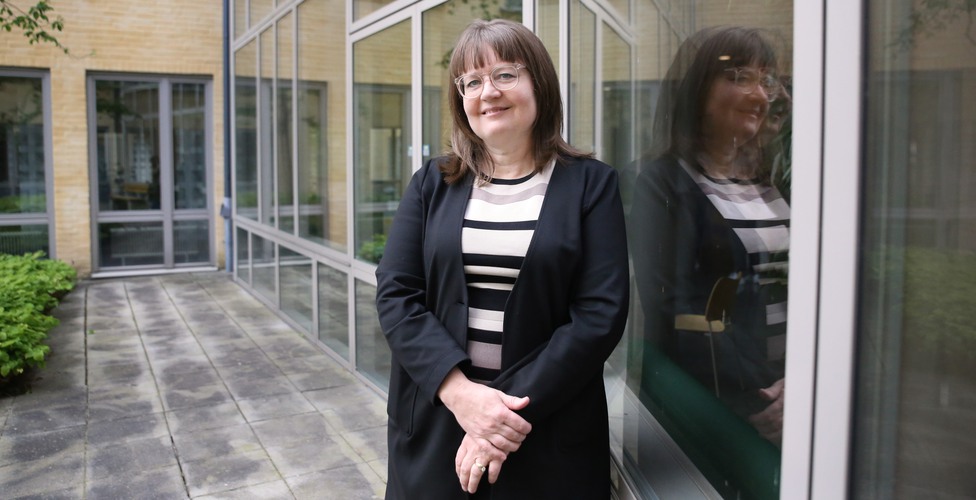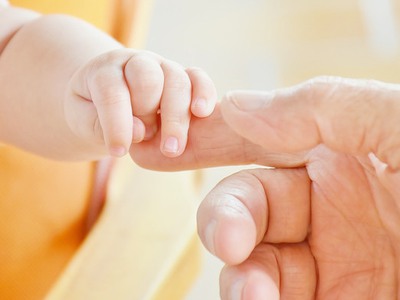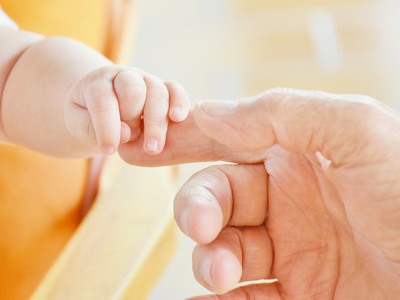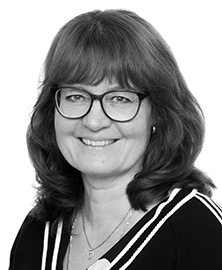Becoming a parent can feel overwhelming, for both mothers and fathers. Åsa Gamgam Leanderz has conducted research into what happens within us and what determines whether a relationship holds together or breaks apart when we have children. Her new research shows that open dialogue and the courage to ask for support are crucial for making the relationship work.
 Åsa Gamgam Leanderz will defend her doctoral thesis at the University of Skövde on Friday, 13 June.
Åsa Gamgam Leanderz will defend her doctoral thesis at the University of Skövde on Friday, 13 June.
Having children is something many long for, but it often brings a greater change than expected. New, intense emotions surface, while you are expected to get to know and care for your child and yourself in a completely new role.
"The most interesting finding in my research is how profoundly we are emotionally affected when we become parents. Becoming a parent is one of the most complex transitions in life during a vulnerable time", says Åsa Gamgam Leanderz, doctoral student at the University of Skövde.
The Mother’s Inner Journey and Challenges
For mothers, the transition to motherhood involves much more than practical changes – it is an existential experience.
"Mothers feel they become more aware of their bodies, how they feel and function, and they come into contact with an inherent vulnerability. Many describe how a sense of belonging and presence in the moment opens up the possibility of being deeply emotionally affected", says Åsa.
At the same time, mothers balance between being part of different communities and managing on their own. They often seek support in communities, especially digital ones, where their experiences are reflected and validated. Unpredictability in everyday life and new responsibilities can affect both well-being and the relationship with the partner.
Fathers Find Support Online
Fathers’ emotions often receive less attention, even though they too go through significant changes. Many fathers lack support in their immediate surroundings and therefore seek help online.
"Becoming a father involves a similar emotional journey as becoming a mother, but fathers often seek support in different ways. They more frequently use digital media as support. It is a way to develop strategies and feel a sense of community, even at a distance", says Åsa.
Why New Parents Drift Apart – and How to Stay Together
Åsa’s research shows that couples who feel they are part of a community, feel supported by their surroundings, and are happy in their relationship have a greater chance of staying together. With support from research, Åsa shares some useful tips:
- Talk openly about emotions and challenges
- Dare to show vulnerability
- Seek support from each other, family, friends or digital forums
- Parenthood is a shared journey, not an individual performance
"Understanding your situation, receiving support, and feeling close to your partner is the key to reducing the risk of drifting apart", says Åsa.
By approaching the change with curiosity, flexibility and support, Åsa believes that parents can create a secure foundation for themselves and their new family.
Research That Can Improve Healthcare
The results of Åsa’s research can be used by healthcare professionals who meet expectant and new parents. Midwives and specialised nurses working in child healthcare, for example, can use the results to talk with parents about what brings meaning during the transition to parenthood.
"It is about understanding that this is not just a medical or practical phase in life, but an existential transition. When healthcare professionals ask the right questions and provide the right support, it can make a big difference", says Åsa.
Åsa Gamgam Leanderz will defend her doctoral thesis “The Parenthood Journey – A time of vulnerability and change in a digital age” at the University of Skövde on Friday, 13 June.




